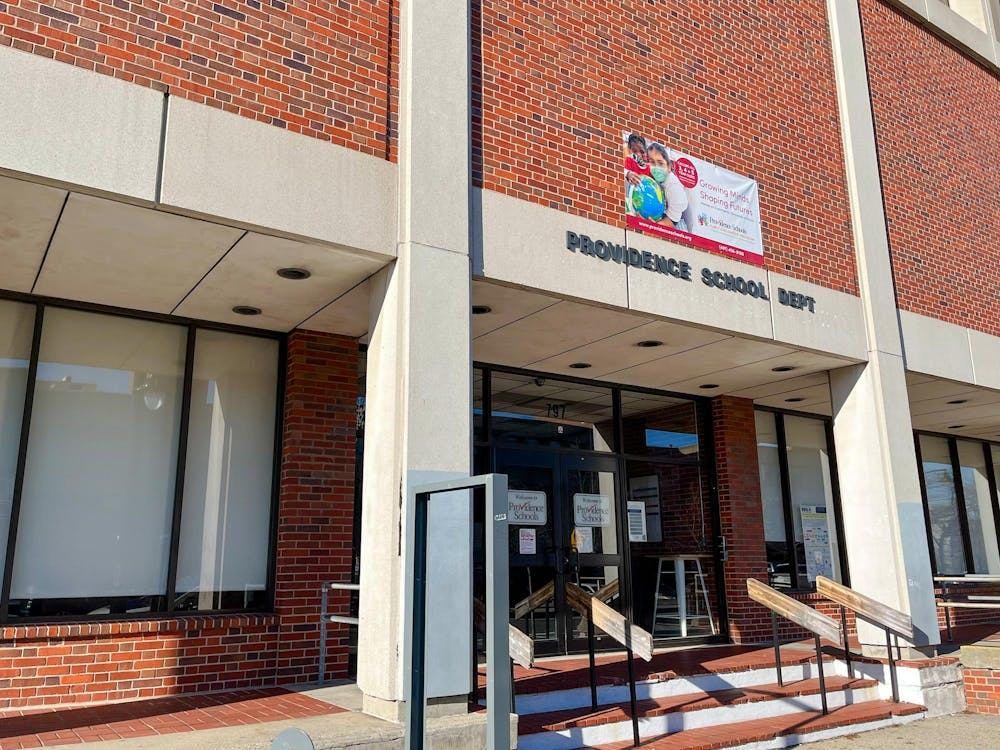After five years under state control, the Providence Public School District hoped this year to regain decision-making power over itself.
But last month, a state council decided that PPSD would remain under the control of the Rhode Island Department of Education, or RIDE, for three more years.
The decision comes amid other critical progressions in Providence’s educational landscape. In July, RIDE renewed Superintendent Javier Montañez’s contract for three more years. The city also anticipates a vote on its new hybrid school board in November, which will feature five elected and five appointed board members.
Rhode Island Commissioner of Elementary and Secondary Education Angélica Infante-Green recommended the extension of state intervention with the public support of Governor Dan McKee.
Since the PPSD first came under state control, the Commissioner and Council have had near total power over district decisions, per Rhode Island’s Crowley Act. The takeover followed a report highlighting systemic dysfunction in the PPSD by Johns Hopkins University.
The Council’s decision to extend the takeover came after two independent reviews of the district’s progress on improving students’ academic performances over the past five years, among other issues. A SchoolWorks report involved interviews with nearly 300 key stakeholders — including teachers, parents and students, said Victor Morente, a spokesperson for RIDE.
Both reports concluded that while PPSD has made some progress, the district had not yet met the goals to overturn the decision.
A review conducted by Harvard found that the PPSD fared better in mitigating learning loss from the COVID-19 pandemic than comparable districts. Despite maintaining relatively steady rates, the PPSD is far from meeting the proficiency goals outlined in its “Turnaround Action Plan.”
For example, RIDE initially aimed to have over 50% of PPSD students proficient in math by the end of the 2024-25 school year. In 2023 math proficiency was only at 13%.
Morente also highlighted other accomplishments, including increased availability of career and technical education pathways, the expansion of five-star pre-kindergarten programs and the growth of professional development opportunities.
But, the reviews also “found that there were still some challenges with governance” at the local level, said Morente.
Providence Student Union Executive Director Denezia Fahie MA ’23, who used to work for the PPSD, questioned the efficacy of both RIDE and PPSD in effectively governing the district. She described the takeover as a “disorganized and messy organization attempting to manage a disorganized and messy organization.”
In a joint statement shared on X, Mayor Brett Smiley and City Council President Rachel Miller expressed disappointment at the state’s decision to continue the takeover. Both wrote that the city was “well on track” to begin a transition back to local control in the 2025-26 school year.
The Providence School Board unanimously voted to request the end of the state intervention. But since their role is largely an advisory one, the vote has no power to override RIDE’s decisions.
Fahie shared that the upcoming transition of the School Board from an entirely mayoral-appointed model to a hybrid elected-appointed model brings some hope for better community engagement. She noted, though, that “it’s challenging because we are asking people to vote for school board positions that are disempowered,” she said. “The school board needs power.”
Fahie believes the takeover has failed to engage students. “There currently aren’t any tangible pipelines for students to give feedback,” she said. Even when RIDE hosts community forums, “there are limitations to where those conversations can go,” she said.
In her recommendation to continue the takeover, Infante-Green wrote that a return to control before the three-year term ends is possible, if local authorities seem prepared. “It is not the desired intent of RIDE to indefinitely maintain care and control of PPSD,” she wrote. The extension is intended to “provide clear stability,” she added.
Fahie said that while she “would love to see those public schools go back to local control,” she believes standard operating procedures, the code of conduct and the PPSD budget need to be updated before the city can effectively control the district.
Infante-Green wrote in her recommendation that local leaders and RIDE should work together to develop a comprehensive transition plan.
Despite the continuation of the state’s takeover, Superintendent Montañez’s contract was renewed to support the Commissioner’s goals of maintaining “continuity and stability” in the PPSD, Morente said.
Fahie spoke to the previous efficacy of Montañez when he was a principal at the PPSD’s Leviton Dual Language School, stating that he created a reputation for having a “phenomenal culture, for having well-engaged students, for having phenomenal programming and curriculum.”
Montañez wrote in a press release that he “will work with (his) team to build on the areas of progress identified and to swiftly address the persisting challenges we face.”
Spokespeople for the PPSD and Providence Teachers Union did not respond to requests for comment.

Ciara Meyer is the managing editor of newsroom and vice president of the 136th Editorial Board. She is from Saratoga Springs, New York and plans on concentrating in Statistics and English Nonfiction. In her free time, she loves scrapbooking and building lego flowers.





